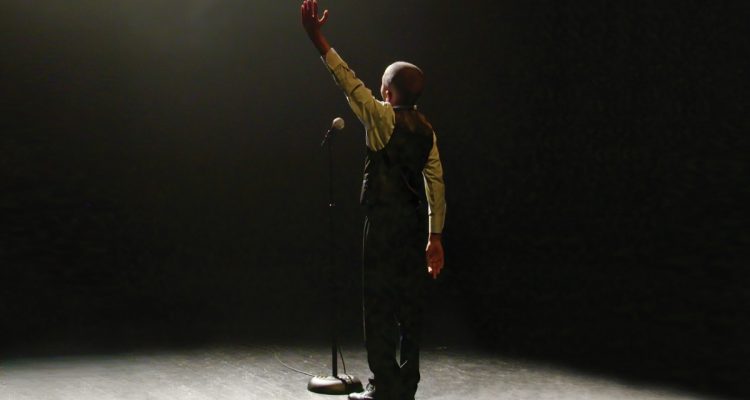If you were unclear about that before, all you had to do is watch the lily-white Democratic debates the other day, listen to any of the cable news channels, walk down the street of your community, sit in someone’s church on Sunday or talk to your children. You will see, that the good and right reverend has been reduced to a paragraph in a social studies textbook and a really cool meme that is circulated three times a year, MLK Day of Service (not his actual birthday), any day February and on the 4th of April. Despite winning the Nobel Peace Prize, traveling across the country with a message of non-violence and getting hosed, stabbed and killed, he has been reduced to one speech— and even that speech has been mischaracterized.
Rev. Mark Kelly Tyler, the pastor of the historic Mother Bethel AME Church, once said: “America has been comfortable with Dr. King the dreamer as opposed to Dr. King who articulates the American nightmare.” And so, moving forward, those who were leftward over his legacy, are now released of their responsibility.
There are new keepers of the guard now and some of their names are Claudia Hung-Haas, Amiya Robinson, Karunyan Kamalraj, Timia Brown, O’nalee Dixon, and Lovely Hudson.
Recently, HBO debuted the cutting-edged documentary, We Are The Dream: The Kids of the Oakland MLK Oratorical Fest, introducing the world to 12 voices that echo the raging baritone that Martin bellowed from his hallowed throat.
The dozen participated in this oratorical contest with the goal to do one of two things, give platform to those who never quite knew that we wanted to hear from them and find remnants of King’s fight and power within a generation who never had to sit in the back of a bus or sip from a fountain segregated by race and religion.
Oh, King lived in them and inspirited their intellectual and emotional tapestries with basic thoughts of equity, love, and justice as the threads that woven his work to theirs.
But how did it come to past?
Executive producer Amatus Karim Ali and her husband, Academy-Award winning Mahershala Ali were asked by HBO to look at this project involving kids. Part of what made it seem like a perfect match was that it has Bay Area roots: Mahershala was raised in Hayward, an East Bay subregion of the San Francisco Bay Area, which is about 10 to 15 miles from Oakland.
But the other part is that it resonated with Amatus is a startling way: “I was in a program similar to The Oratorical Fest when I was in high school at a placed called Freedom Theater in Philadelphia. Afterschool I was at Freedom Theater for four years. These types of programs at the time, across the country, connected us to our ancestors and the work that has been done before us which is an important part of our culture.”
“We had only had our company for one year… and this was a great project to partner with. Particularly as one of our first partners and presenting work.”
Amatus, when thinking about the importance of young people having the space to develop their voices, reflected on her own experiences:
“I think that now that I am grown, and when you are in these different spaces where you are the token (and all of its complexities), it is very important for you to know who you are and to feel confident in that in order to have the freedom and voice in these spaces and make changes along the way you need programs like these. These programs are springboards for that.”
And as they are springboards, doing the great work, they can’t grow from localized clubs to national documentaries unless someone with means and clout can step in and give them access. That is what the Ali’s, two who have greatly benefited from the legacy of King, afforded the program.
But the program had to run.
As an educator, Awele Makeba, was there to shape the contest in a way that not only fostered deep thoughts for kids not even big enough to occupy space with their tiny little bodies but also gave them a treasure trove of snapshots about the Civil Rights leader, that started his own career in contest very similar.
How did she do it?
“[I exposed them] to various resources that could expose them to other pieces other than ‘I have a dream’ and to see his radical work. I also share with them who is carrying the torch in modern-day times and continues the legacy. As you listen to the young people in We Are The Dream, you will see that they have been exposed to various moments in history, as well as looking at human rights around the world, based on who they are ethnically and culturally and their own interest.”
So the young people learned about what Dr. King stood for, but also looked within to find issues that spoke to them. They found issues that they wanted to change. They unpacked systems that no longer served them and that they want to topple. They are the dream.
Strongly annunciating their vision for a better tomorrow, Strongly pushing the table to resemble them at the core of their beings… but also who they physically see in the mirror.
We Are The Dream encapsulates the heritage that King left for young freedom fighters who are struggling to find their voice and places it right in the palm of America’s big old rusty hands.
It is a must-see. It is a don’t let February end without you seeing it. It is a make sure your local school is renewed in their commitment to learning not just King’s biography (who cares if he went to Morehouse), but his platform all the way to the end.
It is simply beautiful and the best Black History Month gift, HBO could have given us: Concrete evidence that King still lives.
